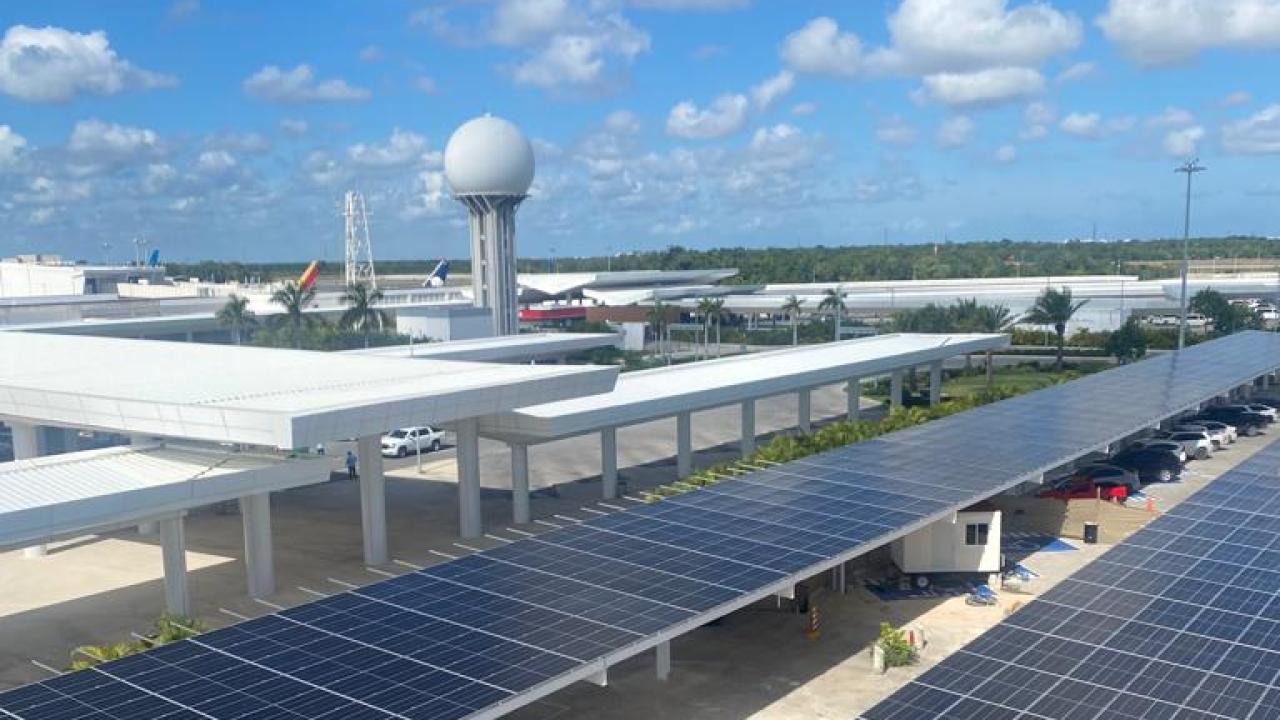
In 2024, the alliance between the energy companies will add new photovoltaic projects to the four already operating in the Aztec country, contributing to the generation of a total of 19 million kWh of clean energy and the reduction of 2,700 tons of CO2 per year.
Since 2022, the airports of Reynosa, Mazatlán, Cancún and Acapulco are successfully incorporating solar energy projects on the roofs of their facilities.
In 2024, the Ciudad Juárez, Chihuahua airport will be added.
Behind these photovoltaic projects is the collaborative alliance between the installation company Solventa Energía and the Chinese solar module and solutions manufacturing company Trina Solar, who have joined forces to promote clean energy in airports and contribute to reducing CO2 in these cities.
In 2022, this alliance successfully implemented four photovoltaic generation systems at the aforementioned airports.
Now, with a vision of growth and expansion, they have set the goal of tripling the amount of power installed in the north of the country, incorporating solutions such as carports , a practical and sustainable alternative to combine vehicle protection with solar energy generation, and other innovations to maximize energy efficiency.
To date, the alliance between Trina Solar and Solventa Energía has enabled the installation of more than 20,000 Vertex photovoltaic modules in its airport projects, generating a total of 19 million kilowatts - 19 megawatts-hour of clean energy per year for Mexico. This will help offset the reduction in CO2 emissions of approximately 2,700 tons per year, in one of the most polluting industries on the planet.
According to BBVA's research “Greenhouse Gas (GHG) Emissions and Sources” published this year, in 2021, 32% of Mexico's carbon dioxide emissions came from fuels used for land, sea and air transport. Alarming figures that contributed to the total of 714 million tons of CO2 equivalent released in the same year by the Aztec country, and to 1.4% of total global pollution.
“Working with Trina Solar has been a very positive experience,” said Sergio Armando Cruz, Director of Engineering at Solventa Energía . “Projects like these are essential to boost the country’s energy transition, since by increasing solar energy generation capacity, we reduce dependence on fossil fuels and encourage the development of renewable technologies. In addition, we create jobs in the sector, which contributes to economic growth and environmental well-being.”
Trina Solar solar panels have demonstrated exceptional performance at airports, ensuring efficient and reliable energy production.
READ ALSO : Álvaro García-Maltrás, Trina Solar: “Latin America will grow at least 20% this year in solar energy”
The Vertex series of modules from the Chinese manufacturer are among the most recognized products on the market, and this year, they managed to obtain the “Top Performer 2024” recognition from Kiwa Group’s PVEL, for their exceptional results in efficiency, quality and safety for large-scale photovoltaic projects. Essential characteristics for Solventa Energía projects.
“We are proud to partner with Solventa Energía on this important initiative to drive the transition to a more sustainable future in Mexico,” said Israel Sánchez, Product Manager for Trina Solar in Latin America and the Caribbean . “These projects demonstrate the airport sector’s commitment to adopting renewable energy and reducing environmental impact. As Trina Solar, we are excited that they are considering our Vertex module technology, which undoubtedly contributes to better long-term results for successful clean energy generation.”
The implementation of these solar energy systems in Mexican airports not only contributes to the fight against climate change, but also drives new advances in the renewable energy sector and strengthens the local economy of the cities where these systems have been implemented.










